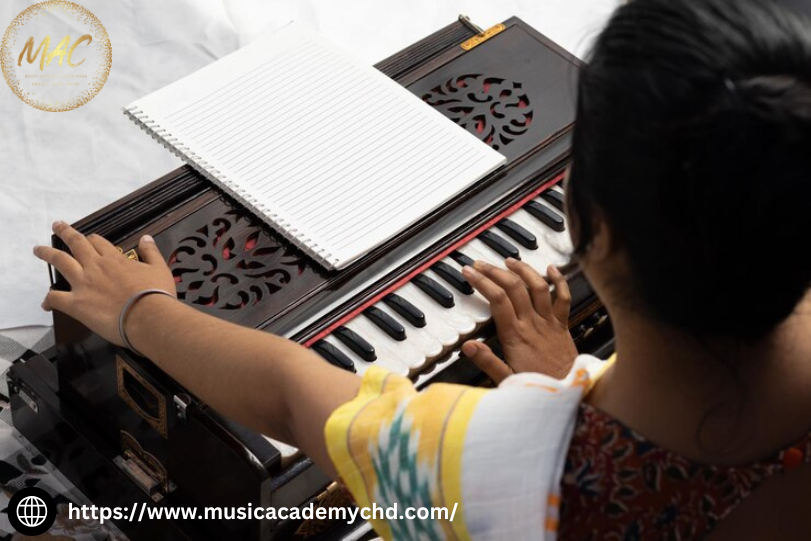Do you want singing classes in Mohali at an affordable price? It’s a dream of many people to learn how to sing beautifully, but the right place is not easy to find.
Here, we will help you if you are serious about improving your singing skills. So, let’s see where you can get the best and affordable music classes in Mohali.
Why Choose Music Academy CHD?
Music Academy CHD is one of the best options if you are looking for singing classes in Mohali. Lessons are offered at all levels from beginner to advanced singers. The teachers are experienced and focus on making students grow.
The friendly environment of the academy makes it a suitable place for anyone who wants to learn music. Additionally, their fees are very reasonable. Music Academy CHD is, therefore, an ideal place for those who wish to take music classes in Mohali with less expenditure.
Explore Local Options
While searching for singing classes in Mohali do not forget to check out community centers in your local area. Most of those centers provide cheap music programs.
Most of these places have skilled instructors, who can teach you the basics of singing. You may also find group lessons, though they are cheaper than private ones.
Meeting others who are also passionate about singing is a great way to do this. Keep searching and you will find the right match for your needs.
Online Platforms Are a Great Option
Online platforms are also good if there are no good singing classes in Mohali. There are many websites and apps that allow you to take lessons from home.
Some even provide free trial classes that you can try out before paying anything. Nothing beats face-to-face teaching, but online options are flexible and cost-effective.
Not only can you still connect with talented instructors from all over the world, but you can as well. This is a smart choice for someone who values convenience.
Ask Around for Recommendations
Looking for music classes in Mohali, the word of the mouth is powerful. Speak to friends or family members who enjoy music. Someone might even know someone who has taken lessons locally.
Time-saving and keeping you from being scammed, personal recommendations are helpful. You could also visit social media groups regarding music lovers in Mohali. There, people frequently review singing classes they’ve attended in Mohali.
Tips for Choosing the Right Class
Research before signing up for any singing classes in Mohali. Go to the academy or center to check if it feels welcoming. Find out about the teachers’ qualifications. Additionally, you can also verify whether they tailor lessons to your individual goals.
For example, at Music Academy CHD, each student gets personal attention. This ensures steady progress. Remember: practice makes perfect, so pick a place that makes you want to get better every day.
Don’t Forget About Discounts and Offers
Some academies in Mohali run special promotions during festivals or holidays. Look for discounts on singing classes in Mohali.
From time to time, Music Academy CHD offers a deal for new students. Quality education becomes more accessible because such opportunities exist. When joining any institute, always ask about ongoing offers.
It is not at all stressful to find cheap music classes in Mohali. There is something for everyone whether you go for local centers, online lessons, or trusted names like Music Academy CHD.
Through dedication and some guidance, you will soon be nailing the high notes. Happy singing.










